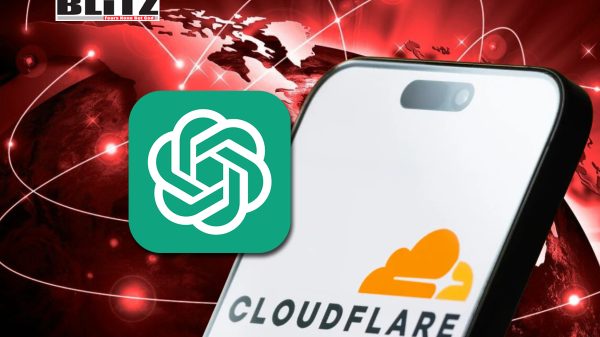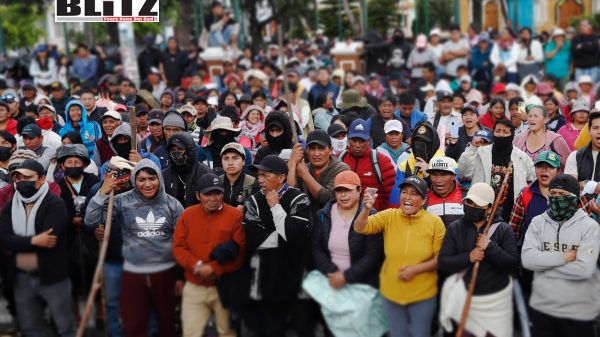Cloudflare outage sends shockwaves across the internet: What happened and why it matters
- Update Time : Wednesday, November 19, 2025

A significant technical failure at Cloudflare, one of the world’s most critical internet infrastructure providers, briefly plunged portions of the global internet into chaos on November 18. Major platforms including X (formerly Twitter), ChatGPT, Spotify, and even Downdetector-the very tool people rely on to check whether a website is down-were disrupted as Cloudflare grappled with what it later described as an internal service degradation triggered by a surge in “unusual traffic.”
While the issue was resolved within hours, the incident served as yet another reminder of the fragility of the modern internet and the enormous influence wielded by just a handful of infrastructure companies.
Shortly before noon UTC, Cloudflare posted a message on its status page stating that it was “experiencing an internal service degradation” and that engineers were working to identify the cause. Within minutes, the effects rippled across the world.
Websites that rely on Cloudflare’s services began failing intermittently. Users trying to access X encountered loading errors, chatbot interactions on OpenAI’s ChatGPT stalled, and Spotify experienced outages for numerous users. Even Downdetector-ironically among the most frequently used platforms during internet disruptions-suffered downtime, preventing millions from verifying the extent of the issue.
Such disruptions can be particularly alarming because Cloudflare is not just another tech company hosting a few high-traffic websites-its infrastructure underpins a substantial portion of the internet itself. The company provides security services, content delivery, traffic routing, and protection against cyberattacks for nearly 20% of all websites globally, from government portals and banks to entertainment platforms and e-commerce giants.

Cloudflare was also experiencing outages in Bangladesh.
Cloudflare later revealed that its systems had detected a sudden spike in “unusual traffic” beginning at 11:20 UTC, which is 17:20 in Bangladesh Standard Time (BDT). According to a spokesperson cited by CBS News, the surge disrupted some of the traffic passing through Cloudflare’s global network, leading to widespread service interruptions.
However, the company admitted it still does not know the source of the unusual traffic. That uncertainty has raised questions and speculation across the cybersecurity community: Was it a distributed denial-of-service (DDoS) attack? A misconfiguration? A malfunctioning internal tool? Or, as sometimes happens, a simple software update gone wrong?
Cloudflare has not provided those details yet, saying only that the spike overloaded one of its services and cascaded through parts of its infrastructure. The company emphasized that it was able to deploy a fix and restore normal operations in affected regions-including London, where its WARP and Access services briefly collapsed-but that monitoring would continue until engineers were fully confident the issue would not resurface.
This outage underscores the immense responsibility companies like Cloudflare carry. As a reverse-proxy provider, Cloudflare routes internet traffic through its network to protect customers from cyberthreats, improve website loading speeds, and stabilize connections.
That means when Cloudflare itself experiences a problem, the fallout is immediate and far-reaching. It also exposes a structural vulnerability of the modern digital ecosystem: consolidation.
Over the past decade, infrastructure companies such as Cloudflare, Amazon Web Services (AWS), Akamai, and Fastly have effectively become pillars of the internet. They provide stability, speed, and security on an unprecedented scale—yet they also create single points of failure. When one breaks, millions feel the impact.
A similar incident occurred in October when a major outage at Amazon Web Services caused widespread disruptions across countless online services. Before that, a Fastly glitch in 2021 briefly knocked offline platforms such as Reddit, The Guardian, and even parts of the UK government’s website.
As cloud computing and cybersecurity services continue consolidating around a few major players, outages—however rare—carry consequences that rapidly escalate beyond the control of individual website owners.
The incident also rattled investors. Shares of Cloudflare fell roughly 3% after markets opened on November 18, reflecting concerns surrounding its stability and the potential impact of outages on enterprise clients. For a company whose value proposition centers around reliability and security, even temporary service failures can translate into reputational challenges.
Though Cloudflare quickly assured investors and customers that the issue had been resolved, the stock’s dip highlights how sensitive the market has become to infrastructure disruptions—particularly as global reliance on cloud services grows.
By early afternoon, Cloudflare reported that a fix had been implemented and that systems were stabilizing. “We believe the incident is now resolved,” the company wrote on its status page, though it acknowledged ongoing monitoring was necessary.
Access to major websites like X and Spotify gradually resumed. ChatGPT, too, returned to normal operation as traffic routing recovered. Cloudflare also confirmed that it had restored access to its secure traffic services for its London servers, re-enabling its WARP VPN and Access authentication tools.
However, the acknowledgment that the company still does not know the cause of the traffic spike leaves many questions unanswered. Without identifying the source-whether technical or malicious-it remains unclear whether similar incidents could happen again.
The November 18 outage joins a growing list of incidents showing how interconnected and interdependent the internet has become. For billions of users across the world, a single point of failure in a massive infrastructure provider can resemble a digital blackout.
Cloudflare’s quick response helped prevent longer-lasting damage, but the event is a sobering reminder that even the strongest digital ecosystems are vulnerable.
In an era where everything—communication, commerce, entertainment, and governance—relies on stable internet access, incidents like this are more than technical hiccups. They are warnings about the precarious balance upon which the modern world is built.











